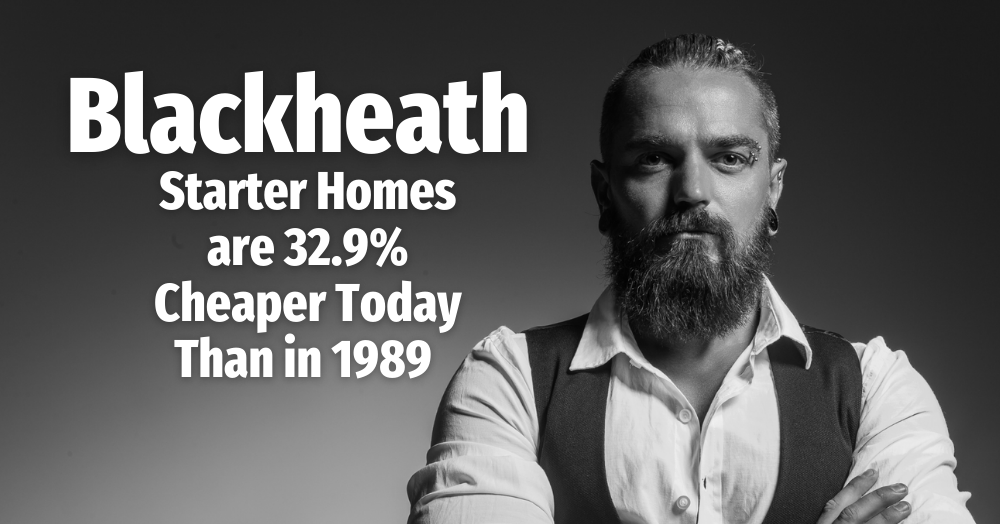Even though house prices have more than tripled in the Country (quadrupled in London), it is still cheaper today to buy a house as a first-time buyer than in 1989 or 2007. This is good news as the Bank of England are changing the rules for mortgage affordability for first time buyers in August.
Even though the average value of a Blackheath first-time buyer property has risen by 451.4% since 1989 to £518,440, the monthly payments Blackheath first-time buyers must make on their mortgages as a proportion of their take-home pay is 32.9% less today compared to 1989.
Today, according to the Nationwide Building Society …
The average Blackheath first-time buyer only needs to pay out 53.2% of their household take-home pay on their mortgage payments, compared to 79.2% in 1989 (i.e. a third less).
You might say 1989 was 33 years ago, a long time ago and not relevant to today. I would agree.
So next, I looked a little closer to home, and in 2007 …
The average Blackheath first-time buyer had to spend 61.9%
of their household income on mortgage payments
(i.e. 14.1% proportionally cheaper than today).
So why do I say all these things?
Last month, the Bank of England revealed that its Financial Policy Committee would be removing their mortgage market affordability test on people taking out mortgages in August.
The test was introduced in 2014 to ensure the UK didn’t have a repeat of the 2008 Credit Crunch and particularly hit first-time buyers with what they could afford to buy.
This rule change means Blackheath property buyers could soon be able to borrow thousands of pounds more and purchase larger homes.
The decision to withdraw the affordability test certainly raised eyebrows in the press, primarily as the Bank of England has raised interest rates five times in the last six months to try and reduce rising inflation. Yet, as stated in the first part of this article, Blackheath first-time buyers are comfortably paying their mortgages compared to previous years therefore - everything should be ok with this rule change.
The old rules tested home buyers on mortgage repayments if interest rates rose to 6%/7%, yet the Bank thought that rule was too harsh.
Not all rules have been changed, as the important Bank of England ‘loan to income ratio’ stays put.
The Bank were keen to stress that the mortgage market was not going to turn into a free-for-all as it did in the mid-2000s when the likes of Northern Rock were offering 125% mortgages, and a sixth of all UK mortgages were given without proof of income.
I believe it will have a progressive effect on the Blackheath property market.
Many Blackheath tenants who have been paying rents far more than actual mortgage payments for the same Blackheath home, but have failed affordability assessments regardless, will now be able to get on the property ladder.
The rule change should open the Blackheath property market up a little more and allow house prices to grow in Blackheath.
I advise anyone who has been refused a mortgage on affordability in the past to speak to a mortgage arranger. If you don't know of one, drop a message to me, and I will give you details of mortgage arrangers you could talk to.

